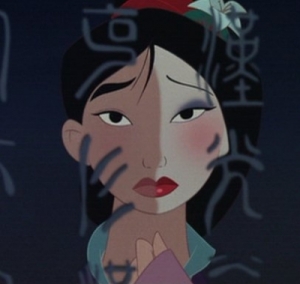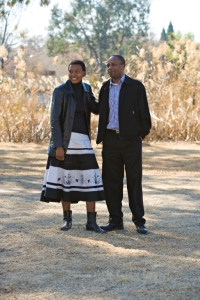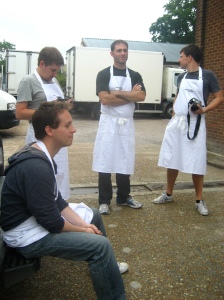 What parts of movies and other entertainment do you wish could be real? Just one of many for me would be the “food fight” scene from the movie Hook where the late Robin Williams’ character, a now middle-aged Peter Pan, finally finds his imagination again with the help of the Lost Boys. The food is the bright colors of Play Dough, but more appetizing, with the thickness and what looks to be the texture of just slightly melted ice cream, or pudding in rainbow colors. It shows up as if by magic when Williams, as Peter Pan, begins to remember what it’s really like to be a boy in a match of words/calling each other names with the Lost Boys’ current leader, Rufio.
What parts of movies and other entertainment do you wish could be real? Just one of many for me would be the “food fight” scene from the movie Hook where the late Robin Williams’ character, a now middle-aged Peter Pan, finally finds his imagination again with the help of the Lost Boys. The food is the bright colors of Play Dough, but more appetizing, with the thickness and what looks to be the texture of just slightly melted ice cream, or pudding in rainbow colors. It shows up as if by magic when Williams, as Peter Pan, begins to remember what it’s really like to be a boy in a match of words/calling each other names with the Lost Boys’ current leader, Rufio. 
So, of course I’m not expecting to wake up one day and find out that I suddenly have the ability to produce candy colored food out of nowhere, or find some Pixie Dust and be able to fly. Are there, though, themes in even the most innocuous love stories and romantic comedies in movies and television that might make me expect more out of relationships than is really there, or than I’d really want?
Which brings us to *this article from the Deseret News* (but I’m not going to bring up that one movie again, since we already went there.)
Which begs the question: What are adolescents and adults alike learning from the romance films of today? Research shows that such films can convey values and ideals that influence the way society views romantic relationships. And while those ideals may not be as extreme as what’s offered by “Fifty Shades of Grey,” it doesn’t mean they’re necessarily healthy.
“Media can provide models,” said Julia Lippman, lead researcher in a 2014 study titled “Isn’t It Romantic? Differential Associations Between Romantic Screen Media Genres and Romantic Beliefs.” “It’s not to say (media) has a determining influence — peers, family and school contribute as well. But we know from research that when (adolescents) don’t feel that they can talk to parents, or they don’t think they are getting information they want, they find ways of getting it on their own. If they are not learning about what healthy relationships look like from home, they’ll find it in the media.”
Love finds a way
Lippman, a researcher at the University of Michigan, has identified different dimensions to romanticism: love finds a way, one and only, idealization and love at first sight. Her research indicates that the “endorsement of romantic ideals may have both positive and negative consequences.”
“One of the things movies communicate is that love finds a way,” Lippman said. “If it’s meant to be, you’ll find a way to be together.”
This ideal, Lippman said, is generally linked to positive outcomes. Take, for instance, Princess Buttercup from the 1987 cult classic “The Princess Bride,” who believes that true love endures. According to Lippman, people may hold similar views that allow their relationship to endure.
“People who watch more (romantic-themed films) are more likely to endorse (romantic ideals) such as love finds a way,” Lippman said. “People are seeing these ideals portrayed and are adopting romantic beliefs. People who endorse beliefs tend to have happier relationships.”
For example, Lippman said, if a woman finds an irritating quirk about her partner, she may decide she can live with it because “love finds a way.”
“The potential for good is absolutely there,” Lippman said.
Relationship destiny
Films such as the 2001 romantic comedy “Serendipity” and the 2004 blockbuster “The Notebook” encapsulate the idea of two protagonists caught in a sphere of relationship destiny: soul mates destined to find each other despite opposition.
Yet the idea of a “one and only” is a distorted view of love, according to psychologist Bjarne M. Holmes, associate professor and program director for psychology at Champlain College in Burlington, Vermont.
Holmes conducted a study in 2007 of romance-oriented media and how it correlated with beliefs in romantic relationship destiny.
According to the study, “The notion that one can find a romantic partner that fits perfectly with preconceived standards is an unrealistic view that fails to take into account the work required to develop and maintain a healthy and loving relationship.”
Holmes found in his research that there are implications to the concept of relationship destiny, including the notion that with the existence of a soul mate comes instantaneous satisfaction and happiness upon entering into a serendipitous relationship.
Additionally, Holmes found, there is the belief that a successful long-term relationship is not attainable with anyone but a person’s “one and only.”
And this belief is not necessarily helping the masses of audience members who pour into theaters to suspend reality for upward of two hours.
“I would say there are not many pros from buying into relationship destiny,” Holmes said in an interview with the Deseret News. “We are shown consistently (through research) that if you hold and believe in the notion of predestined soul mates, you are less likely to be happy in relationships.”
In fact, Holmes said, individuals deeply invested in relationship destiny are more likely to break up. The reasoning is simple, he explained: Couples who enter into a relationship where one or both parties believe in the soul mate concept are more likely to end the relationship when challenges arise.
“When things don’t go so well, they think, ‘Wait, why are we having problems? Maybe this isn’t my soul mate,'” Holmes said.
As referenced in Holmes’ research, in a 2003 study by psychologists Litsa Renee Tanner, Shelley A. Haddock, Toni Schindler Zimmerman and Lori K. Lund, researchers analyzed themes surrounding love in 26 classic animated Disney films. The results showed an emphasis on “love at first sight.” In fact, in 18 of the 26 analyzed films, couples met, fell in love almost instantaneously and lived idyllic lives.
According to Holmes’ research, “when notions are in place about some easily achieved state of romantic bliss, satisfaction with one’s own relationship may decrease.”
“I find a lot of people in our culture put so much emphasis — reinforced in popular culture and film — on finding the right person, not an emphasis on what you do over time if you want happiness and longevity,” Holmes said.
The ‘attunement’ effect
When soul mates find each other in romantic films, a deep, personal connection is often portrayed.
A 2005 study by Tracy Sutton and Gregory Fouts from the University of Calgary illustrated what has been referred to in the field of psychology as “affect attunement.” Attunement is “a dynamic process of emotional exchange in which two individuals experience a sense of ‘oneness’ and intersubjective relatedness,” according to Sutton and Fouts’ research.
Additional research collected by Sutton and Fouts shows that this attunement has been described as the idea of soul mates.
Sutton and Fouts’ research also included how attunement is depicted in films through industry techniques: music, pace, number of cuts, camera shots and lighting levels.
Music, they found, establishes the tone or feeling of the film.
“More lyrical and slower-tempo music may reflect being in the ‘flow’ with another and ‘in the moment’ in which time ‘slows down’ or ‘stands still,’ common perceptions associated with ‘chemistry,'” according to the study.
Other techniques, such as close-up camera angles, portray intimacy on screen. According to the research, these camera shots “may be used to indicate an intimate connection or the unspoken, internal dialogue of the characters.”
Additionally, low lighting can communicate privacy or intimacy.
Of the films examined in Sutton and Fouts’ research, 79 percent used music to portray chemistry.
The sellout
Ultimately, Holmes said, the status of soul mate takes years to develop.
Yet audiences today are paying upward of $10 a ticket to see love that bends time and reality to come to fruition. And it is wrapped up in two hours or less.
“People are selling themselves short if they are front-loading all these characteristics they expect the person to be their ideal mate to have,” Holmes said.
Holmes said that when it comes to romance, it’s a process.
“In reality, you don’t meet your soul mate,” he said. “You develop that over time. You create your own culture over time between two people.”
Films today skip the work and immediately arrive at relationship bliss, Holmes said.
And, what’s more, after analyzing the content of popular romantic movies, Holmes said researchers identified a media trend that portrays couples who have experienced a long-term relationship in a negative light.
“The relationship is often bickering,” Holmes said. “The irony of that is (in reality there are) a lot of people who are very happy together and have figured out what works for them. That’s who these younger people should be looking to.”














 I want singles to feel empowered. They are not victims who just react to their circumstances. They can influence their relationships and they need to express their feelings, rights, and needs. But how do singles do this? And where is the line between influencing relationships and manipulating others.
I want singles to feel empowered. They are not victims who just react to their circumstances. They can influence their relationships and they need to express their feelings, rights, and needs. But how do singles do this? And where is the line between influencing relationships and manipulating others.